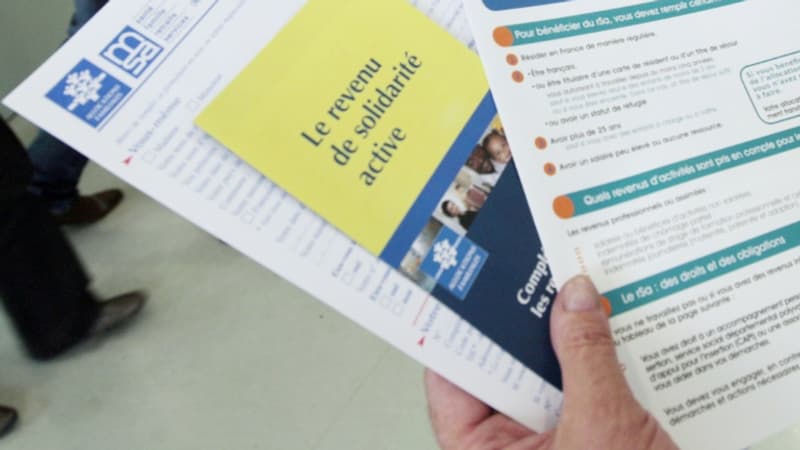Health problems, difficulty caring for children, cost of transportation to get to work: two-thirds of RSA beneficiaries report obstacles in their job search, and most regret not having support to overcome them, according to a study published this Tuesday.
23% of the recipients of this social minimum affirm that the lack of means of transport is the main obstacle to finding a job, and 8% mention the cost of transport. 20% mention health problems and 7% difficulties in caring for their children, according to this study by Drees, the statistics service of the social ministries.
These barriers can lead recipients to stop looking for work, the authors note. Thus, more than a quarter of the recipients do not work and are not looking for work: 11% are in a “halo around unemployment” -they say they want to work despite everything-, and 15% do not have a job. they don’t look for one and say they don’t want to work.
Faced with these difficulties, recipients can benefit from “professional” or “social” support. The first, most often through employment centeraims to find a job (assisted or not), an internship, training, or create a business.
61% of beneficiaries had an unmet need
The second, through a social action center, the CAF or the departmental council, aims to “address problems of access to care, housing, transportation, child care or over-indebtedness, help carry out administrative procedures, renew a relationship social or even to learn to read or write”, detail the authors of the study.
“Those who say they are supported are very satisfied with the help they have received”, but “few RSA beneficiaries consider themselves helped”, says the DREES: 61% had “at least one need for help in professional or social matters” that has has not been satisfied, which leads to “questioning the reality of the support offered and its adequacy to the needs of the beneficiaries”.
In another study also published on Tuesday, the DREES is interested in the reinstatement of RSA beneficiaries to work. This, “without being the majority, is not rare”: thus, among those who did not have activity in 2018, 19% did so the following year.
However, the new job of the people concerned is often precarious and/or part-time. Consequence: among those who received the RSA in 2018 and found work in 2019, 60% continued to receive a social minimum at the end of 2019. “Having found a job does not guarantee, therefore, leaving the social minimum or, in any case, , not (…) in a sustainable way”, the authors point out.
Source: BFM TV


